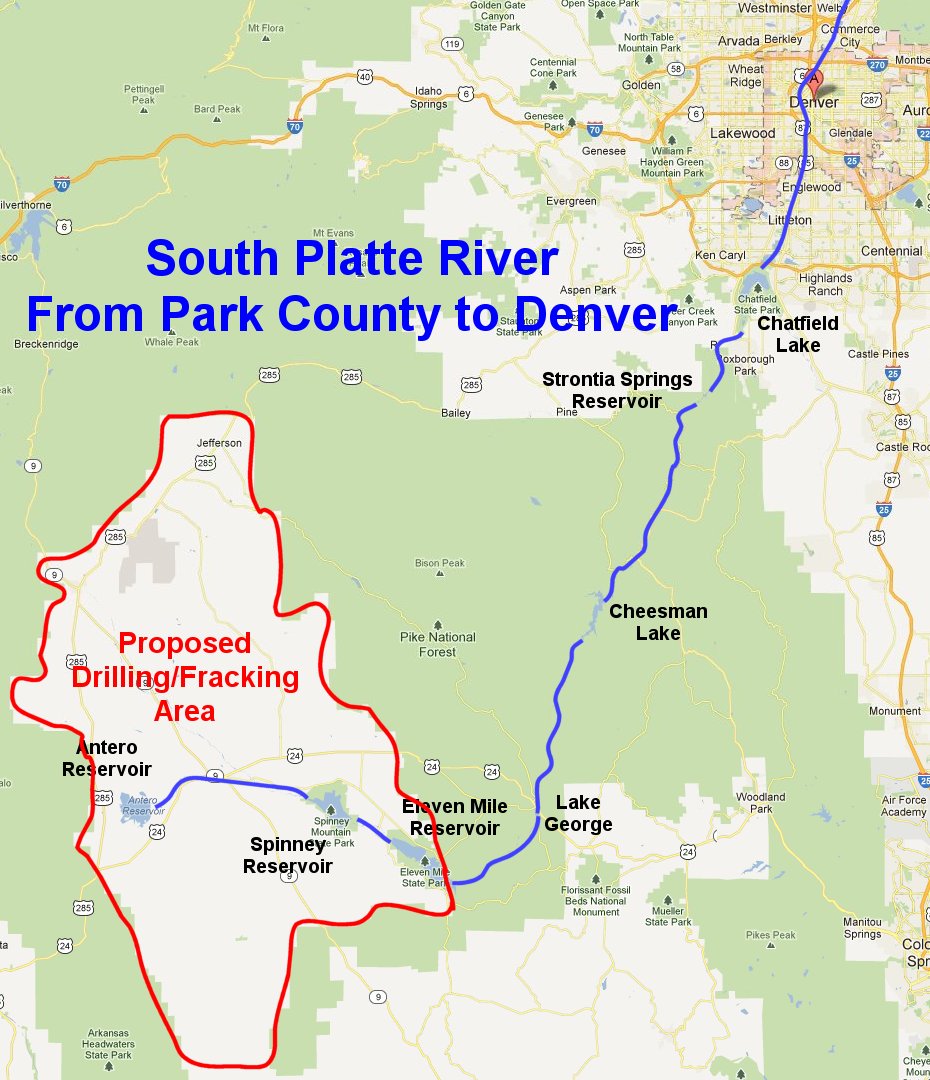By Gary Wockner, Colorado Program Director
What has separated the fracking wars in the Eastern U.S. from the Western U.S. is that New York City'sand Pittsburgh's watershed -- the place where these cities get their drinking water -- is proposed to be fracked. As you can expect, when millions of people learn that potentially cancer-causing chemicals are going to be injected into the ground near their drinking water, they get very riled up.
Conversely in Colorado, fracking has mostly occurred on the plains and near the suburbs, whereas Denver's watershed is upstream in the mountains.
Until now.
Last year, the U.S. Bureau of Land Management proposed to lease publicly owned land in Park County, Colorado for drilling and fracking. Park County is the headwaters of the South Platte River, upstream of Denver, and the location of multiple large reservoirs for Denver and Aurora, Colorado's drinking water, serving over two million people for Denver and Aurora combined.


Related Posts
Stay Informed
Get the latest updates and actions:
Thanks for signing up!
There was a problem processing your signup. Please try again.


